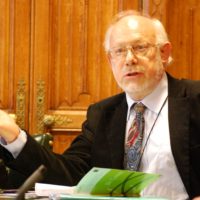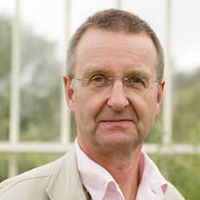On 29 August 2019, in an interview with Sky News, Professor Sir Ian Boyd, retiring Chief Scientific Adviser at the Department for Environment, Food and Rural Affairs (Defra), commented on the question of whether imports of chlorinated chicken and beef reared with artificial hormones should be allowed into the UK. He said that these were matters that should be decided by ‘consumer choice’. This briefing explains why the issues he raised – analysed in depth in previous FRC Brexit Briefings – are highly contested and sensitive; why we would be concerned if the UK allowed these products in under new post-Brexit trade deals, such as the one mooted with the US; and why Defra and other bodies such as the Food Standards Agency, which are supposed to protect consumers, should not duck the issues by saying this can be left to ‘consumer choice’. Opening up British markets to US-produced meats and vegetables is far more than a concern about animal welfare; it implies significant risks to public health and a radical decline in food quality standards which would be unprecedented and unacceptable in the UK. This must be prevented by robust commitments, which should be included in all legal agreements in any post-Brexit trade-related negotiations.
- The Food Research Collaboration ceased its activities on May 31, 2023, after nine years of operations. All of our publications remain accessible - you can download them from this website. However, the site and related email accounts are no longer being maintained or updated.
Chlorinated chicken: Is the UK being softened up to accept lower food standards?
Chlorinated chicken: Is the UK being softened up to accept lower food standards?
Chlorinated chicken: Is the UK being softened up to accept lower food standards?
Erik Millstone, Tim Lang & Terry Marsden
About the authors

Erik Millstone
Erik Millstone is an Emeritus Professor of Science Policy at the University of Sussex. His first degree was in Physics, followed by three in Philosophy. Since 1974 he has been researching into the causes, consequences and regulation of technological change in the food and chemical industries. His research focus has extended over food additives, pesticides and veterinary medicines, as well as BSE, GM foods and obesity. Since 1988 he has been analysing in more general terms the role of scientific experts, evidence and advice in public policy-making.
Having conducted comparative studies of food safety policy-making regimes across numerous jurisdictions, he contributed to articulating proposals for the creation of the UK’s Food Standards Agency, and led a study for the European Parliament reviewing the proposal to create the European Food Safety Authority. In the past 12 years his researches have extended into food and agricultural policies in developing countries. Much of his current research focuses on the implications of Brexit for food security in the UK.

Tim Lang
Tim Lang has been Professor of Food Policy at City, University of London, Centre for Food Policy since 2002. He founded the Centre in 1994. After a PhD in social psychology at Leeds University, he became a hill farmer in the 1970s in the Forest of Bowland, Lancashire which shifted his attention to food policy, where it has been ever since. For years, he’s engaged in academic and public research and debate about its direction, locally to globally. His abiding interest is how policy addresses the mixed challenge of ensuring that food is good for the environment, health, social justice, and consumers. What is a good food system? How is ours measured and measuring up? He has been Vice-President of the Chartered Institute of Environmental Health (since 1999).

Terry Marsden
Professor Terry Marsden researches the interdisciplinary social science and applied policy fields of rural geography, rural sociology, environmental sociology, geography and planning. He has published over 150 international journal articles, book chapters or books. This includes 20 research monographs and edited collections.
Professor Marsden’s body of work ranges from original theoretical work in the field, through to empirical analysis and emerging policy impacts and analysis. It includes wide ranging work on: the socio-economic restructuring of agriculture; theorisations and empirical investigations of rural development; analysis of agri-food chains and networks; and critical commentaries in the emerging fields of environmental sociology and environmental planning. The empirical work has extended from the UK, Europe, Brazil, the Caribbean and now China.


